Terpstra: It was pretty simple, Peter Sagan was too strong
No complaints from Dutchman after third place at Paris-Roubaix
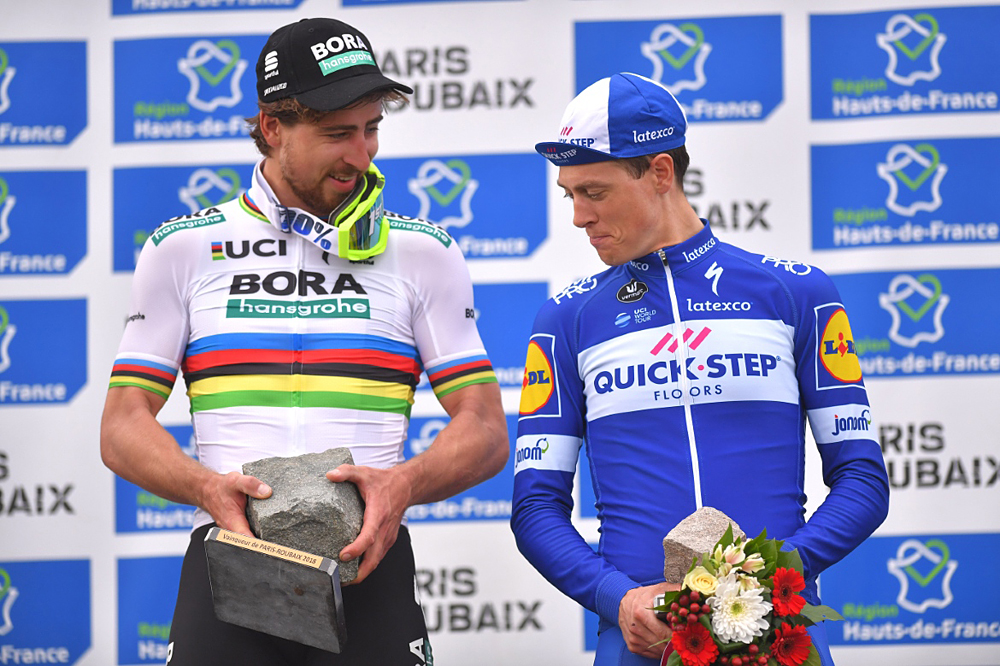
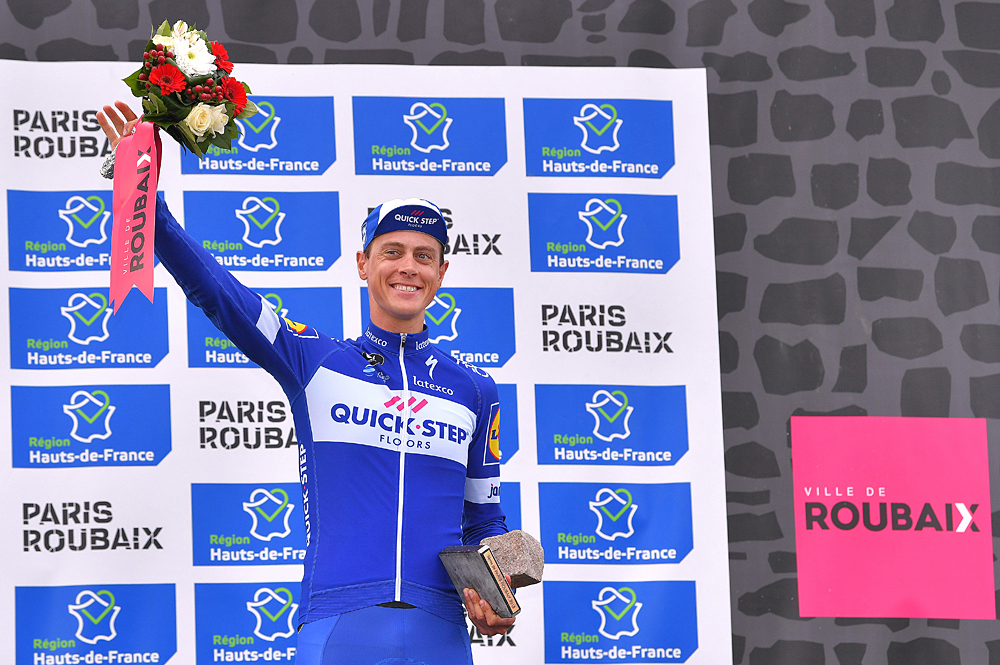
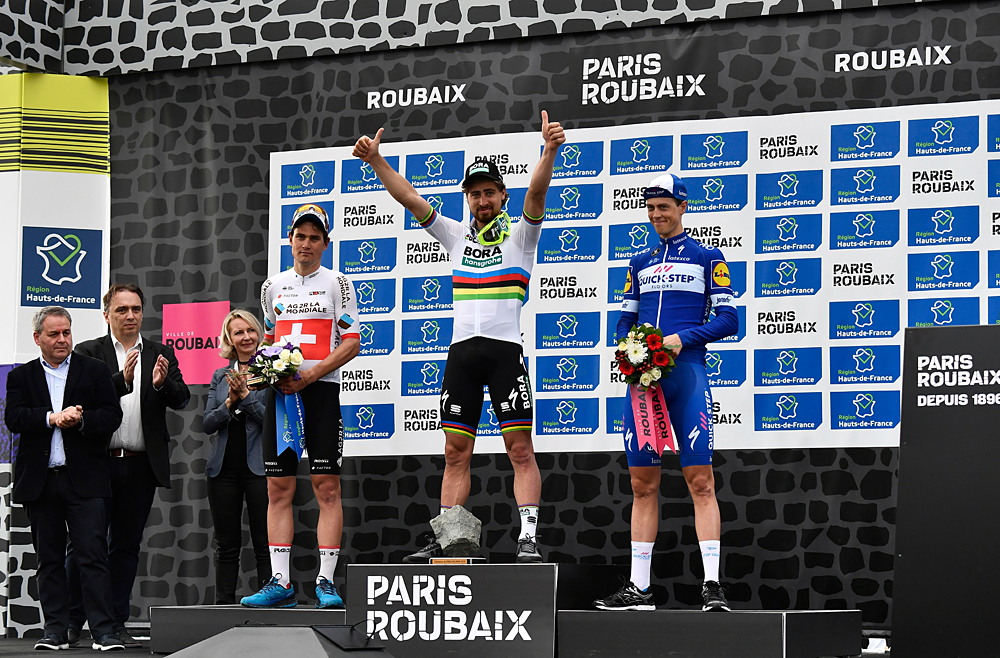
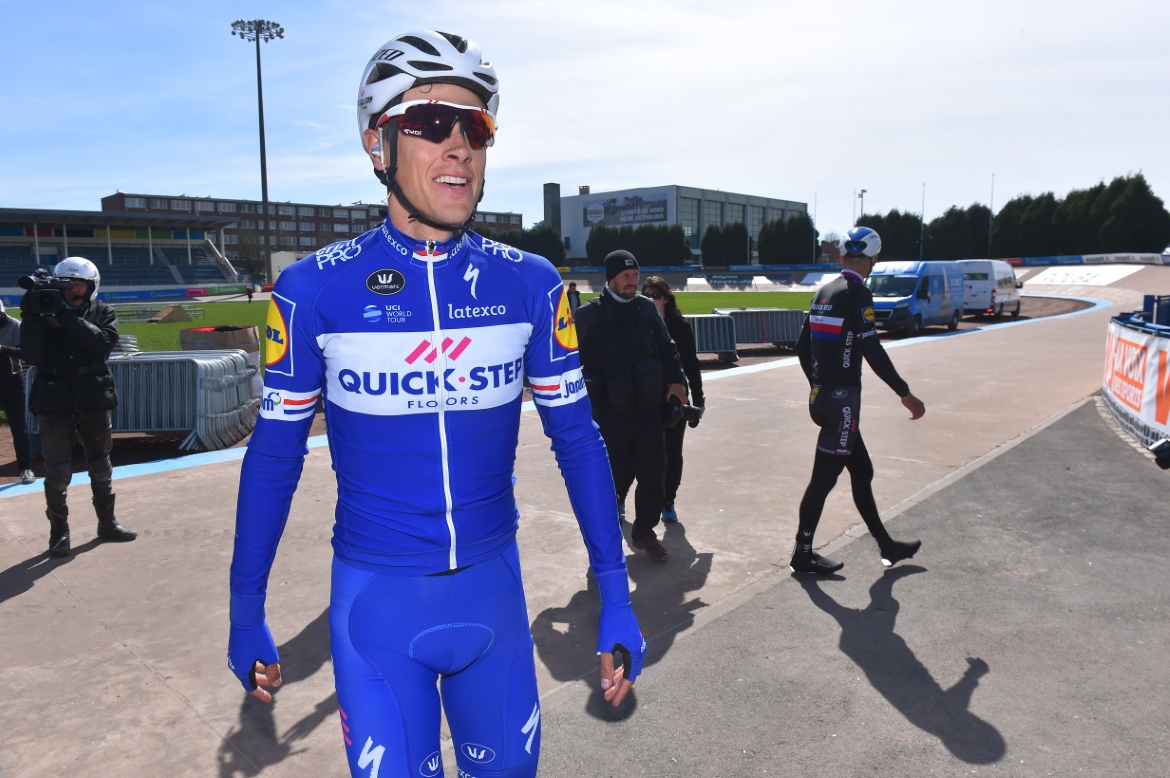
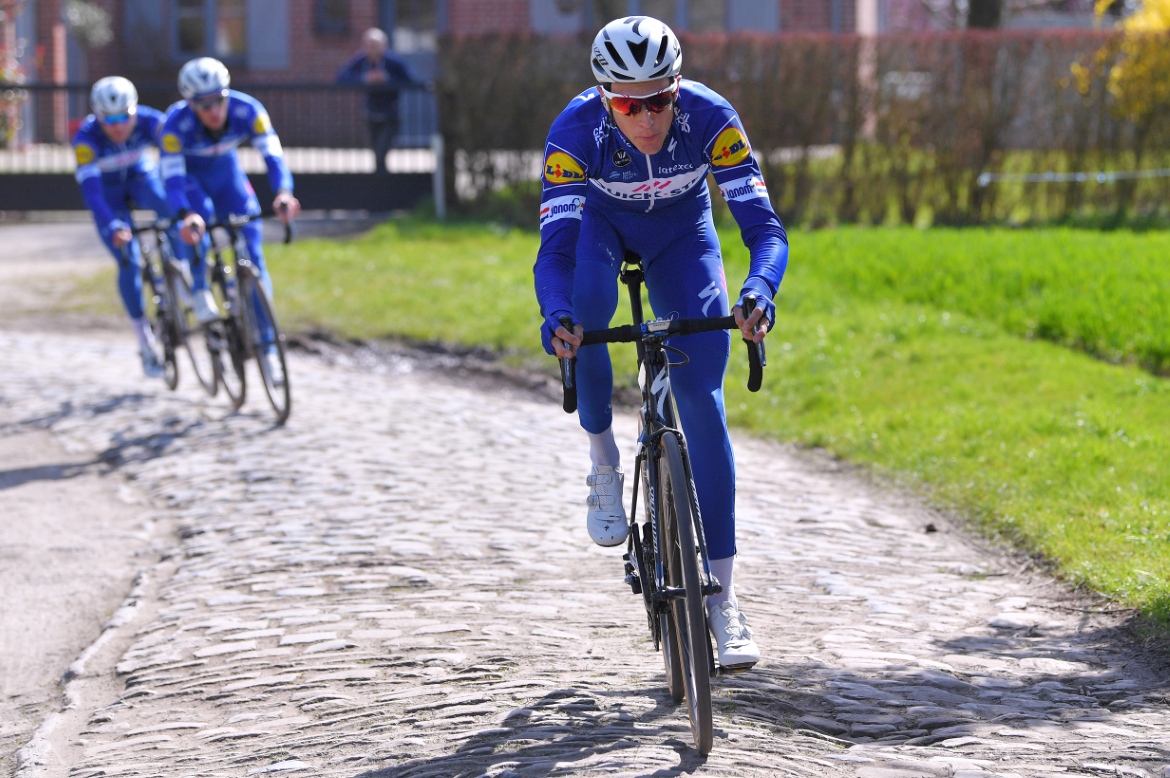
No complaints and no excuses. For better and for worse, Niki Terpstra (Quick-Step Floors) has developed a reputation for forthright speaking over the years, but he was as magnanimous as he was succinct after placing third in an edition of Paris-Roubaix won in disarming fashion by Peter Sagan (Bora-Hansgrohe).
Vanmol claims weight loss was key to Terpstra's Tour of Flanders victory
Terpstra: Paris-Roubaix is a nasty race and that's why I love it
Peter Sagan wins Paris-Roubaix
Peter Sagan: I wouldn't trade a world title for this Paris-Roubaix win
Dillier: Peter Sagan was an angel and a devil in the same person
Watch Peter Sagan win his first Paris-Roubaix crown - Video
Phinney surprises with a top-10 finish at Paris-Roubaix
Philippe Gilbert: I'm disappointed but there are no excuses
Peter Sagan's Paris-Roubaix winning S-Works Roubaix – Gallery
"Of course, I'm not as happy with third as I was with winning last week [at the Tour of Flanders – ed.], but if you look at the race, the world champion was the best today," Terpstra said on the grass in the centre of the Roubaix velodrome after the podium ceremony.
Quick-Step's dominance on the cobbles so far this season made Terpstra and his team the favourites for this edition of Paris-Roubaix, and they began their expected offensive by sending first Philippe Gilbert and then Zdenek Stybar up the road. Both moves came to nothing, however, and there was no response from the men in blue – or from anyone else, for that matter – when Sagan powered clear of the group of favourites with all of 54 kilometres still to race.
"We attacked early with different riders but unfortunately when Peter made his move we were not there to react," said Terpstra, who quickly stressed that the world champion's victory brooked no argument. The attack owed as much to raw strength as it did to timing. "If you make a move like that, it's not only with the brains but with the legs. He must have the legs to do this."
A week ago, Sagan stood on the steps of the Bora-Hansgrohe bus after the Tour of Flanders and complained – not with much foundation – that none of his rivals had helped him to chase down Terpstra's solo winning attack.
Seven days on, Terpstra and Sagan found their roles had been reversed, but the Dutchman pointedly refused to bite when asked during the post-race press conference if there had been a lack of cohesion among the chasing group.
"No, actually the cooperation was pretty good. Of course the other teams looked at us to chase, but in the end we worked together pretty well until the final three kilometres, I have to say. But Peter was going so fast it was hard to catch him," Terpstra said. "It was pretty simple, he was too strong."
Get The Leadout Newsletter
The latest race content, interviews, features, reviews and expert buying guides, direct to your inbox!
Terpstra's forcing on the pavé at Templeuve with 33 kilometres remaining helped to establish a select chasing group with Greg Van Avermaet (BMC), Jasper Stuyven (Trek-Segafredo) and Sep Vanmarcke (EF-Drapac), but they never looked like getting on terms with Sagan and his companion, the earlier escapee Silvan Dillier (AG2R La Mondiale). In the final 1500 metres, Terpstra slipped away to claim third, some 57 seconds down on Sagan.
"The cooperation was not so bad, we were just not strong enough," Terpstra said. "It's logical after this Spring campaign that others look to Quick-Step, but they also knew if they didn't chase Sagan they weren't going to win the race. So you don't hear me complaining about a lack of cooperation."
Favourite status
In years past, Terpstra approached the grandest occasions as a foil to Tom Boonen. This time around, after stunning solo wins at the Tour of Flanders and E3 Harelbeke, he arrived at Paris-Roubaix with the billing of a top favourite. Sunday morning's edition of L'Équipe, for instance, put him on the front page alongside Sagan.
"Well, they were right," Terpstra smirked after the race, though he dismissed the idea that his new standing had been any sort of a burden on the trek through the Hell of the North. "I'm pretty honoured with the status. Maybe it's easier to be an underdog, but the best riders know how good they are, and it doesn't matter what's in the newspaper before the race."
A week ago at the Ronde, Quick-Step's blue jerseys seemed to spend the bulk of the day on the front, setting an infernal pace in the opening two hours and then dictating the tempo once the race hit the Flemish Ardennes.
They were similarly prominent at Paris-Roubaix, leading on the early section of cobbles and then sending Gilbert and Stybar up the road after the Arenberg Forest, but none of their number were close at hand when Sagan launched his race-winning move on a seemingly innocuous stretch of asphalt near Auchy-les-Orchies.
"The race is 260 kilometres long, and you can't be on the front with your team for all 260 kilometres," Terpstra said. "It was good to be in front and stay out of trouble earlier in the race. At that moment, we didn't have someone on the front row, but it's not only Quick-Step who make the race.
"There were had some attacks before it, with Zdenek and Philippe. Greg [Van Avermaet] did an attack as well. But in the end, it was Peter and that was the right one. It was pretty early, but sometimes a moment is the right moment."
Terpstra's features creased into a resigned smile when asked why that was the case. "Because it was the winning move," he said.

Barry Ryan was Head of Features at Cyclingnews. He has covered professional cycling since 2010, reporting from the Tour de France, Giro d’Italia and events from Argentina to Japan. His writing has appeared in The Independent, Procycling and Cycling Plus. He is the author of The Ascent: Sean Kelly, Stephen Roche and the Rise of Irish Cycling’s Golden Generation, published by Gill Books.